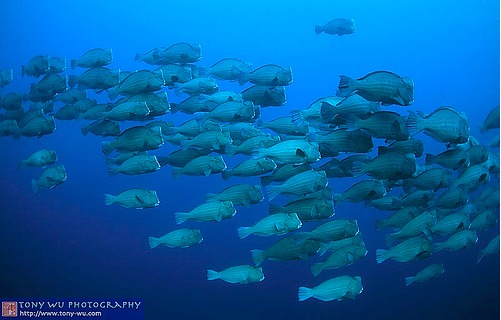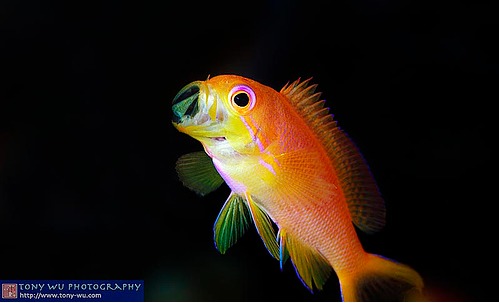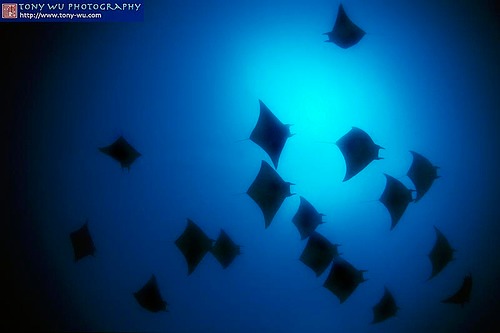Papua New Guinea’s Eastern Fields Expedition, Nov/Dec 2009
Wetpixel Expeditions
Eastern Fields in Papua New Guinea
+ other remote reefs inaccessible by other means

For an idea of what this trip will be like, please see a write-up by Tony Wu and one of his photo galleries.
UPDATE: Full trip report posted!
Trip Dates:
Trip 1: 24 Nov (Tue)-6 Dec (Sun) 13 days/ 12 nights [FULL | waiting list available]
Trip 2: 8 Dec (Tue)-19 Dec (Sat) 12 days/ 11 nights [FULL | waiting list available]
People: 9 pax
plus Eric Cheng + Tony Wu (trip leaders)
Boat: MV Golden Dawn
Cost for Trip 1:
Cabins 1, 4, 5: US$ 4968 x 6 people
Cabin 2: US$ 4658 x 2 people
Cabin 3: US$ 4347 x 1 person (share with Eric Cheng)
Cost for Trip 2:
Cabins 1, 4, 5: US$ 4554 x 6 people
Cabin 2: US$ 4270 x 2 people
Cabin 3: US$ 3985 x 1 person (share with Eric Cheng)
Costs inclusive of room, all meals while on board, air tanks for diving. Exclusive of alcoholic beverages, soft drinks, Nitrox, PNG diving levy, rebreather rental/ courses/ sorb/ gases (see below).
Other Costs:
Nitrox: $8/ fill (trying to get a fixed rate -- stay tuned)
Rebreather hire: $65/ day
Rebreather course: $1,300 (including 10 dives). Training/ certification on KISS rebreathers.
Rebreather sorb: $25/ fill
PNG diving levy: US$4/ day
Fuel surcharge: Nothing as of now. In the event that there's a substantial increase in fuel, Golden Dawn may need to add a fuel levy.
Tipping: Voluntary tips for crew, generally around 10% of trip cost, passed to Capt. Craig in an envelope.
All of these costs payable while on the boat. Cash is best, though Capt. Craig can take credit cards.

Deposit and Payment:
1. US$1000/ per person deposit to confirm (non-refundable)
2. Additional US$1000 by 31 May 2009 (refundable only if your spot is filled)
3. Balance of payment by 24 July 2009 (refundable only if your spot is filled)
No spot is confirmed until a deposit and booking form is received. If your payment is late by more than 14 days, your spot may be filled by someone else.
How to Book:
All bookings will be done through Dan Baldocchi: .(JavaScript must be enabled to view this email address)
Questions:
Dan Baldocchi is available to answer questions, but you may also contact Tony Wu at .(JavaScript must be enabled to view this email address).
Eric Cheng is away from November 25, 2008 to April 9, 2009, but you may try contacting him. It may take him awhile to reply, but he will eventually get your message.

Air transport/ Accommodation:
You need to fly into Port Moresby on either Air Niugini or Airlines PNG. Golden Dawn departs from Port Moresby, so no domestic flights are necessary. Air Niugini gateway cities include Singapore, Kuala Lumpur, Tokyo, Manila, Cairns, Brisbane (see timetable). Airlines PNG gateway cities are Cairns and Brisbane. If possible, it may be a good idea to arrive in Port Moresby a few days prior to departure to get over jet lag. Accommodation options in the city of Port Moresby are limited and tend to be expensive and full all the time. My favourite place to stay is Loloata Island Resort, about 30 minutes outside Port Moresby. If you stay there, you can diving local waters prior to departure. There is a lot of great diving around Port Moresby (see article about photographing at one of the best sites and some sample photos). On the way back, there is no departure tax (it's included in your ticket), and the airlines are relatively strict about charging for excess luggage. You can pay excess baggage charges with a credit card at the airport.
Immigration/ Customs:
Holders of passports for many countries can obtain visas on arrival (for a fee) at Jackson's International Airport. Double check before leaving. It only takes a few minutes at the immigration counter. Customs is usually not a big deal. There are enough divers travelling to PNG that they recognise Pelican cases and the like. If pressed, just say that you're taking a diving holiday. If asked where, answer Loloata (because everyone knows Loloata, some may not know Golden Dawn) and smile. Only once have I been "taxed".
Diving Considerations:
We depart usually in the early evening from Port Moresby to make an overnight crossing to the Eastern Fields, prevailing weather conditions permitting. On the return leg, we aim to arrive the morning of the last day of our trip in the Port Moresby area, and squeeze in some diving in local waters if possible.
Bear in mind that the Eastern Fields is a submerged atoll in the middle of nowhere. It's completely exposed to the elements and virtually uncharted, which is the reason so few people go there. Only a few hundred people have ever dived out there. Our trips are scheduled for a time of year when conditions should be good out there, but with recent climate fluctuations, there is a possibility that adverse weather may delay or limit our activities. In these circumstances, Craig makes every effort to adjust and get us in the water wherever and whenever possible. If you tend to get antsy when things don't go as expected, please take this into consideration.
Diving off the Golden Dawn and especially in the Eastern Fields is for experienced divers only. Depending on the site, we may all enter as a group, but quite often, Craig anchors/ moors the boat, and you can go in/ out at your leisure. This means that you're responsible for your own safety. The crew does an excellent job of keeping track of everyone's bubbles, but keep in mind that we'll be in the middle of the ocean, at least a day away from any land, within no other sane person anywhere nearby. Getting bent or having any other adverse incident would be an even bigger ordeal than usual. There is a chamber in Port Moresby, maintained by the Papua New Guinea Divers Association and contributions from divers via the PNG diving levy.
A typical day's schedule would be as follows: 06:30 or so morning snack of fruits, cereal, coffee, etc. First dive 07:30-08:30. Hot breakfast after the first dive, followed by second dive. Lunch around 12:30-13:30, followed by afternoon dive. Afternoon snack after the third dive. Depending on location, a 4th and/ or 5th dive. You are of course not required to do any dive you don't want to. Given that we will all be interested in photography/ video, if we hit a particularly good spot, we can request to stay for multiple dives to optimise current, sunlight, etc.
Diving Gear: I recommend a 3mm wetsuit. The water tends to be around 28ºC. If you tend to get cold, bring a hood and some gloves. You will set up your gear on the rear dive deck, and leave it on your tank for the duration of the trip. Air/ Nitrox fills will be done directly to your tank. There are baskets under your tanks for small items (reef hooks, pointers, extra masks, etc). Bring spares of anything you need (batteries for dive computers, mask straps, fin straps, etc) as there's no corner store to get supplies like this.
Rebreathers: Craig maintains a limited number of KISS rebreather units. He is a certified instructor and can train you during the trip if you're interested. Keep in mind that you'll need a few training dives, which means finding less challenging (and hence somewhat less visually stimulating) locations. There are many advantages and risks associated with using rebreathers. If you have experience on other rebreathers, the KISS unit should be easy to learn. If you don't have any experience, diving on rebreathers is arguably an entirely different experience than using scuba. There is a steep learning curve, both book-learning stuff and simply getting used to the initially awkward sensations involved. If you're interested in using a KISS unit, you need to let Craig know well in advance so he can prepare the requisite gases and sorb (which is a logistical challenge in PNG).
Camera Equipment: The Eastern Fields has everything from the tiniest of critters to humongous sea fans and large fish. In my personal experience, the wide angle photography has been so good that I've only occasionally used my macro lenses (though I've seen many small things I wanted to take photos of). Visibility tends to be very good since we'll be far from land. There have been a few times when viz suddenly declined without any apparent reason however, more often on the inside of the atoll than the outside.
NOTE: BOAT IS SMALL! Golden Dawn is a cozy boat, meaning you won't have a lot of space to spread out your camera gear. In fact, plan on not doing so. With so many photographers on board, we'll most likely need to set up camera gear prior to departure, and store big cases. Bring smaller cases if you can and small tupperware sets for odds and ends.
Similarly, there are relatively few charging outlets, all packed into a tight corner. Most of the charging stations are 220V. There are a few 110V. Try to bring universal voltage chargers, as compact as possible. Usable plug shapes are Aussie-style slanted and US-style. Bring shape adapters for Aussie-style. They come in handy on the boat and also if you spend time on shore.
Computers/ Communication: Plugging in/ charging computers will be a logistical challenge, assuming everyone has laptops. We'll have to take turns and play nice. For all practical purposes, there is no access to the internet while on board. Craig does have email access, but it is an extremely slow and expensive system. Craig can set you up with a temporary ID on his domain for emergency contact, but it's more trouble than it's worth, and realistically, the world won't end if you're out of touch for a couple of weeks. If you're expecting a really important message while you're on board, I suggest asking the sender to email Craig directly and Craig can pass you the message. There is WiFi access back in Port Moresby at the port, though it's really expensive and not all that fast. There is a satellite phone on Golden Dawn which you can use if necessary. There is a per-minute charge to cover the cost of calls.
You can purchase a local SIM card for your GSM phone if you want. Roaming has recently started in PNG. I'm not sure how reliable it is, or whether roaming contracts will still be in place by the time our trip comes around. Note that there's no mobile coverage shortly after we leave port.
Other Stuff: Bring bug repellent for when we're in port. Malaria and dengue cases pop up in Port Moresby, though I've never had a problem. Taking malaria prophylactics is and option, but unless you're planning extensive travel within PNG, it's probably overkill.
If you're prone to seasickness, bring pills for the crossings, which can sometimes be rocky. Sunscreen is a good idea, though you don't get a lot of sun exposure while on the boat.
The local currency is the Kina. You can exchange at the airport. You won't need any local currency while on the boat. We won't be seeing anyone else in the Eastern Fields.
Food on board is very good. Breakfast is informal and in the main cabin. Lunch and dinner are family-style on the top deck. Snacks are plentiful. Essie's triple chocolate cake concoction is to die for. She only makes this for birthdays, so please...everyone arrange to have your birthdays while we're on board!
It can get chilly sometimes on deck and in the aircon areas, so bring a fleece jacket or something equivalent.